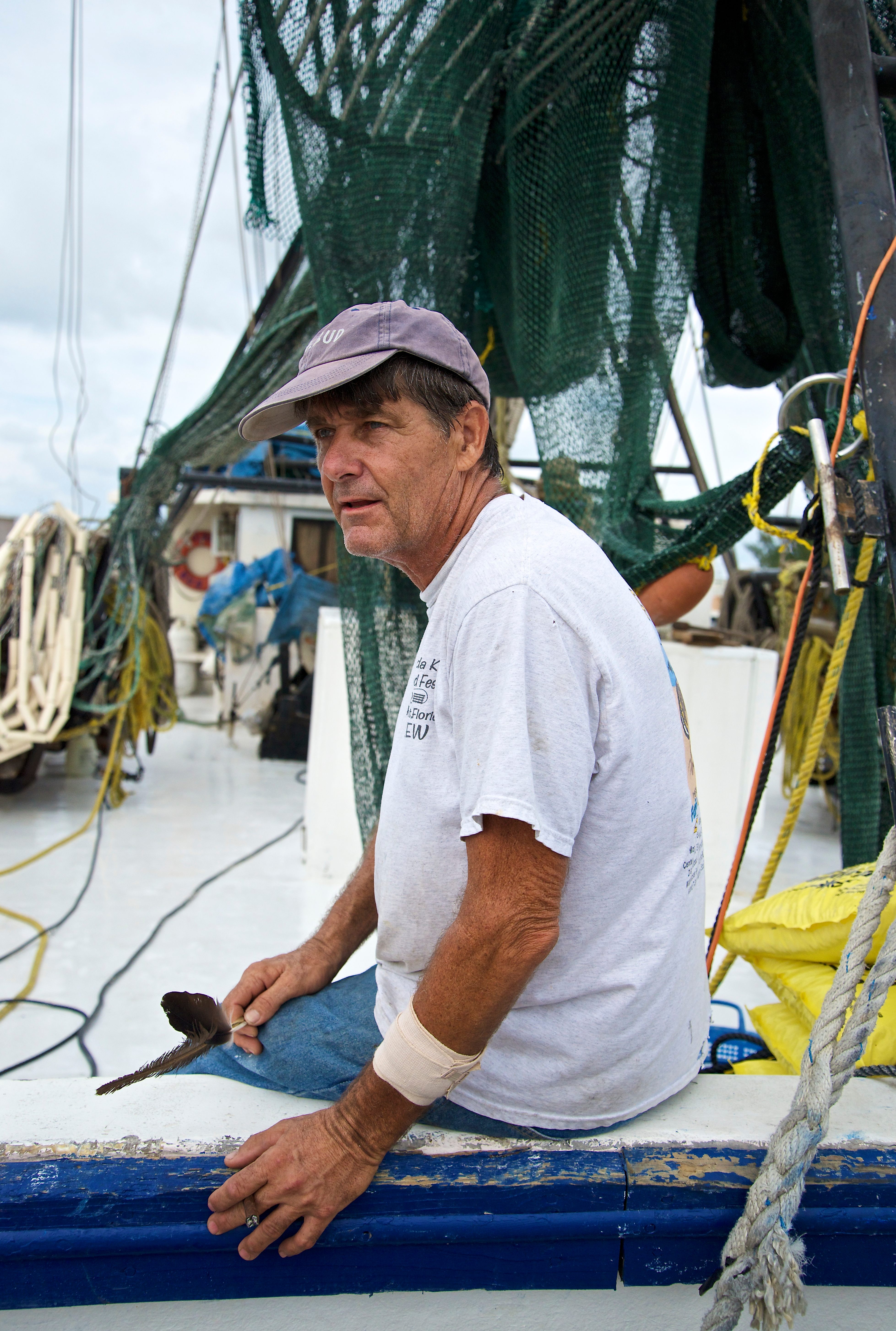The United Islands of America: Never Whistle on Deck, and Other Sailor Superstitions
Sailors have left safe harbors for the open water for millennia, facing rogue waves, waterspouts, faulty equipment, sharks and pirates, among other treacheries of aquatic life. Ships are at the mercy of nature, and fishing is essentially a game of chance—and chance prompts superstition. As they traveled afar, sailors picked up, shared, memorized and passed down superstitions to other crew members.
In The Odyssey, sailors observe their dreams and myriad natural events as prophecies; Homer could barely wend his way through a single hexameter without referencing something to do with birds, thunder, or other harbingers. From Samuel Taylor Coleridge’s The Rime of the Ancient Mariner we know that an albatross sighting was considered good luck by Antarctic-bound crews—unless you killed it, and then, not so much.
I recently drove 3,000 miles or so from South Padre Island, Texas to North Carolina’s Outer Banks along the entire Gulf of Mexico and Southern Atlantic coasts speaking with trawler captains, marine biologists, and chefs for my forthcoming cookbook Shrimp Country: Recipes and Tales from the Coastal Road. Along the way, I got a chance to learn about the astonishing variety of superstitions that help sailors cope with the danger and uncertainty of their work. Each captain I interviewed has his system of beliefs; some overlapped from island to island, while others were unique to them. On my old stomping ground of Tybee Island, Georgia, Captain William Kemp of the shrimp trawler Christina Leigh knew better than to tempt fate by allowing bananas or peanuts on board. Both are monkey food, and in his words, “you don’t want a monkey on your back.” On the Mississippi coast, nautical historian Dr. Val Husley recalls sailors tossing coins overboard as a form of tribute. Tattoos have served as a way to ID sailors’ bodies should things go awry at sea, but they are also talismans for some.

Captain Charlie Livingston of Aransas Pass, Texas’s The Babe shows some of his tattoos, including a lucky horseshoe with its open end up to catch the good fortune. (Photo by Anna Marlis Burgard)
Captain Shep Owens of Stock Island, Florida’s Cap’n Bud says if he finds feathers on deck on the day he’s heading out, it’s going to be a profitable fishing trip. Captain Antoine Gilliard makes sure his Wadmalaw Island, South Carolina-based Tina Marie crew never whistles on board (“you don’t whistle for the wind”) or sets their caps upside down (“upside down hat, upside down boat”). If he sees a bird with a shrimp or fish in its beak, he knows it will be a good hunt. Like his peers, Captain Barry Woods of the Island Girl on Amelia Island, Florida never heads out on Fridays. He and others have told me it’s because Jesus was crucified on a Friday, but there are those who think the crew just doesn’t want to miss the action in town on Friday nights.

Captain Shep Owens of Stock Island, Florida’s Cap’n Bud holds his good luck charms; When he finds these frigate bird and other feathers on board before shipping out, he knows it will be a good trip. (Photo by Anna Marlis Burgard)
Captain Linda Greenlaw—introduced to us through Sebastian Junger’s The Perfect Storm and then the Discovery Channel’s Swords: Life on the Line—is based on Isle au Haut, Maine, where her family has fished for five generations. Linda is most famous as a swordfish captain. She once wore the same purple t-shirt for 30 days straight because they were hauling in so much fish. Much like a ball player not shaving his beard when his stats are up, she wasn’t about to jinx her good fortune. “If things are going well, you change as little as possible.” She’s frequently worked with men who don’t allow pork on board—or even allow the word pig. “I’m not sure where that one started, but you have to say ‘curly-tailed animal’ or something like that instead.” Many crews won’t allow women on board, considering them bad luck “Jonahs.” Linda’s success is living proof that sometimes the omens just don’t hold water.
Naming a boat has its own superstitions. It’s considered unlucky to rename a vessel unless you follow a certain ritual when doing so: removing all traces of the boat’s current name from log books, maintenance sheets, baseball caps, lifesaving rings and anywhere else, then appeasing the sea and wind gods with supplication, and champagne, before bringing aboard any items inscribed with the new name. Madge Williams, the matriarch of Hobo Seafood in Swanquarter, North Carolina, testifies: “I believe in that superstition a bit. My husband, Lee, changed the name of one of our boats, the Master Les, to Addiction in honor of his penchant for salvaging trawlers. I joke that this was bad luck, because that boat has had frequent break downs and has an ADDICTION to mechanical work…and still often remains…MasterLESS!”
Traditions like these are a part of the cultural fabric of coastal and island communities—and part of what makes my explorations endlessly fascinating and entertaining.
Island hopper Anna Marlis Burgard is the creative force behind hundreds of illustrated books and gift products and is the author and principal photographer for Islands of America: A River, Lake and Sea Odyssey. As part of a monthly “United Islands of America” series, she’s sharing some of the more obscure destinations she’s discovered on her journeys to more than 80 islands in 22 states.





Follow us on Twitter to get the latest on the world's hidden wonders.
Like us on Facebook to get the latest on the world's hidden wonders.
Follow us on Twitter Like us on Facebook